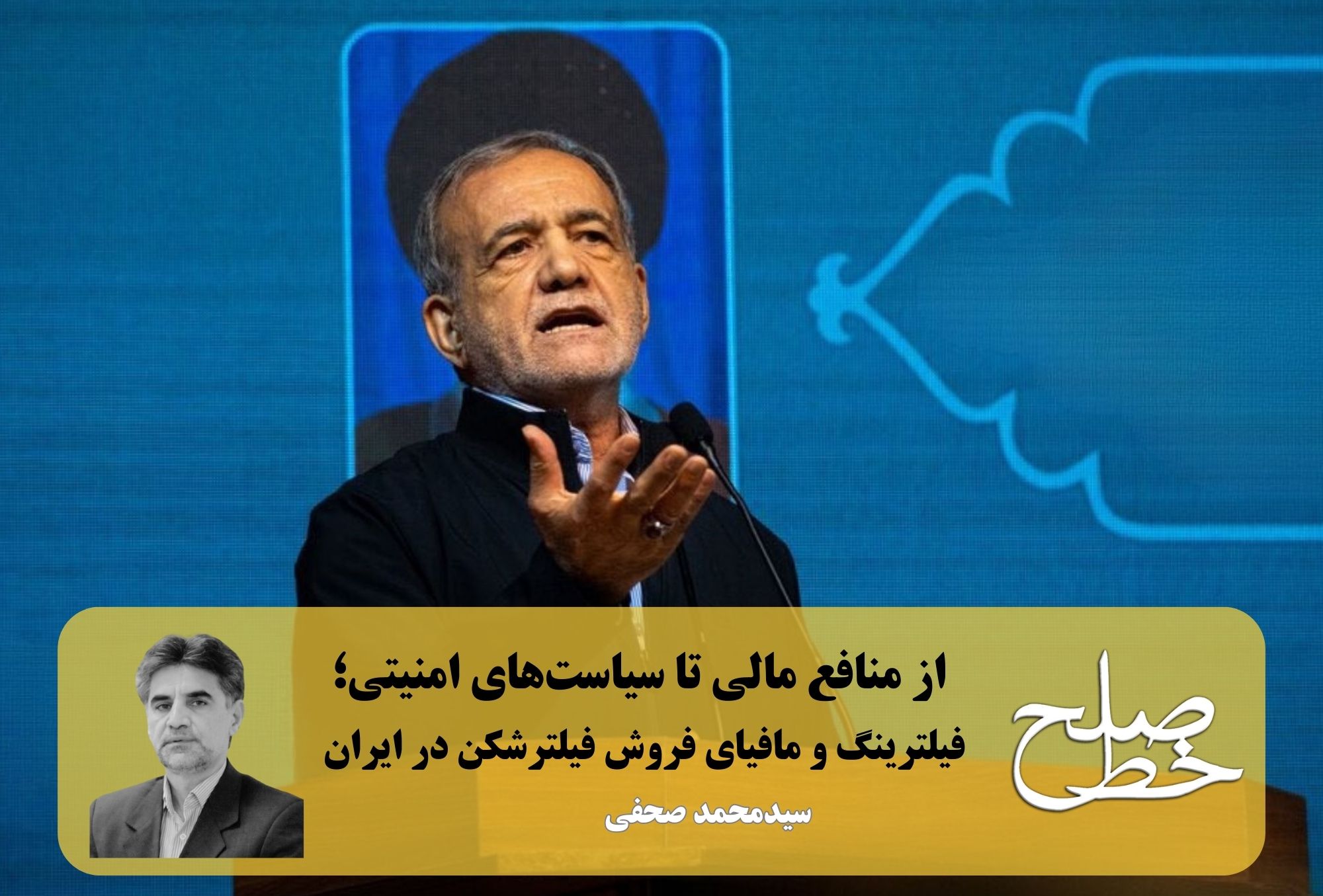
From Financial Gains to Security Policies: Filtering and the VPN Sales Mafia in Iran/ Seyed Mohammad Sohofi
Unofficial reports suggest that the financial turnover from VPN sales in Iran is remarkably high due to the widespread use of these tools and the lack of transparency in this market. With the sharp rise in demand for VPNs following the widespread filtering of social media platforms such as Instagram, WhatsApp, X (formerly Twitter), Telegram, and YouTube in recent years, this market has become one of Iran’s hidden economic sectors. Estimates indicate that more than 70% of internet users in Iran rely on VPNs to access filtered websites and social media platforms.
To estimate the scale of this market, consider a conservative scenario where only 10 million users spend an average of 30,000 tomans per month on VPNs. This would yield an annual turnover of 5.4 to 7.2 trillion tomans. However, the actual figure is likely much higher, as monthly costs for some users reportedly reach 300,000 tomans—ten times the assumed base amount.
In this vast financial market, not only are influential individuals, companies, and specific groups within Iran implicated in VPN sales, but foreign VPN providers also reap significant profits from the high demand among Iranian users. Beyond the cultural, political, and security implications of the “VPN trade,” this issue contributes to substantial capital outflows from Iran and increases corruption due to the lack of regulation and transparency in this sprawling market. This raises a critical question: Why has such a rent-seeking and corrupt market emerged, whether due to mismanagement, incompetence, or cultural and security concerns adopted at specific times?
The government’s persistent filtering of social media, a long-standing policy justified by various cultural, political, and security reasons, has become increasingly ineffective. There are virtually no websites, applications, or social media platforms that users cannot access despite filtering. With the advent of new technologies like Starlink, which is gradually becoming more widespread, the efficiency of filtering has diminished further, rendering it a largely obsolete policy.
An examination of key dimensions of filtering in Iran may shed light on the broader implications of this policy and its impact on society.
1. Financial and Economic Aspects of Filtering
In addition to the VPN sales mentioned above, another critical financial element is the development of domestic messaging platforms. These platforms, which aim to replace foreign social media networks, often receive substantial financial backing from specific government-affiliated institutions. Many observers believe these institutions may have a vested interest in maintaining filtering policies to force users onto domestic platforms that provide controlled content.
2. Internet Contracts and Bandwidth Usage
Restricting access to international internet services while increasing reliance on domestic bandwidth creates significant financial benefits for certain companies and government-affiliated entities.
3. Role of Responsible Bodies
One of the key entities influencing filtering policies is the Working Group to Determine Instances of Criminal Content, which operates under the Judiciary of the Islamic Republic. This group, comprising representatives from the government and security agencies, is tasked with deciding which platforms or user accounts should be filtered. However, critics allege that major decisions—especially during periods of unrest or social upheaval—are made beyond this group, likely by the Secretariat of the Supreme National Security Council.
4. Telecommunications and Infrastructure Companies
Infrastructure and telecommunications companies, including the Telecommunications Infrastructure Company and telecom operators, play a crucial role in implementing filtering policies.
The Pezeshkian Administration and the Challenges of Filtering
The election of Masoud Pezeshkian, who campaigned heavily against social media filtering and called for action against VPN sales, created widespread expectations among his supporters and immense social pressure on his administration. Pezeshkian’s administration, particularly the weak performance of the Minister of Communications and Information Technology in addressing this issue, has faced intense criticism from political and social activists.
After significant efforts—largely attributed to Pezeshkian’s personal persistence—his administration recently achieved one notable success: removing the filter on WhatsApp. This achievement was made possible by securing the support of the Supreme Council of Cyberspace. However, Pezeshkian’s broader success in fully lifting filtering depends on multiple factors, including overarching state policies, the extent of his administration’s authority, cooperation with other centers of power, and public support.
It is widely recognized that Pezeshkian’s approach to filtering differs from other government factions. As a reformist with a history of critical views on restrictive policies, Pezeshkian may prefer to reduce internet restrictions. However, his ability to address this social demand is significantly constrained. His success in this area hinges on his ability to engage with entities beyond the executive branch, such as the Judiciary, the Supreme Council of Cyberspace, and security agencies.
One major obstacle to Pezeshkian’s efforts is the state’s overarching policies on cyberspace, which appear to have the approval of the Supreme Leader. Modifying or easing these policies requires extensive negotiations with non-governmental entities. If Pezeshkian fails to implement even minor changes to filtering policies, and if the state’s security-driven view of the internet and social media remains dominant, even his administration will likely be unable to achieve meaningful progress in this area.
Tags
3 Peace Treaty 1653 Filtering Filtering Mafia Freedom of speech Intelligence Internet Mafia Masoud Pazhakian peace line Peace mark journal Seyed Mohammad Sahafi Seyed Mohammad Sohofi Social networks Virtual space VPN ماهنامه خط صلح